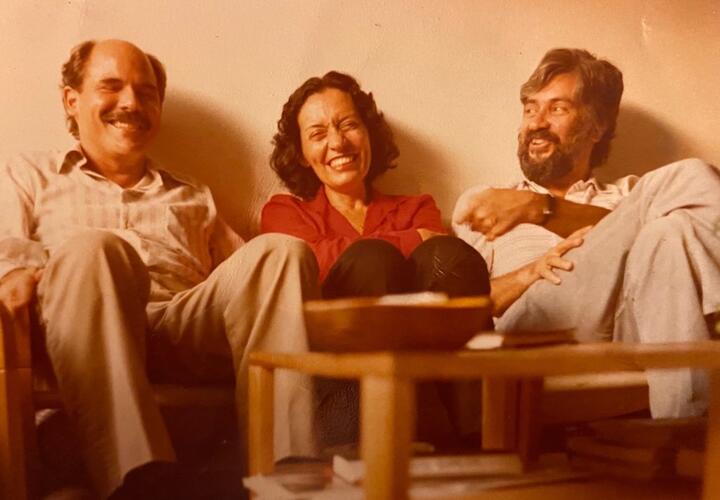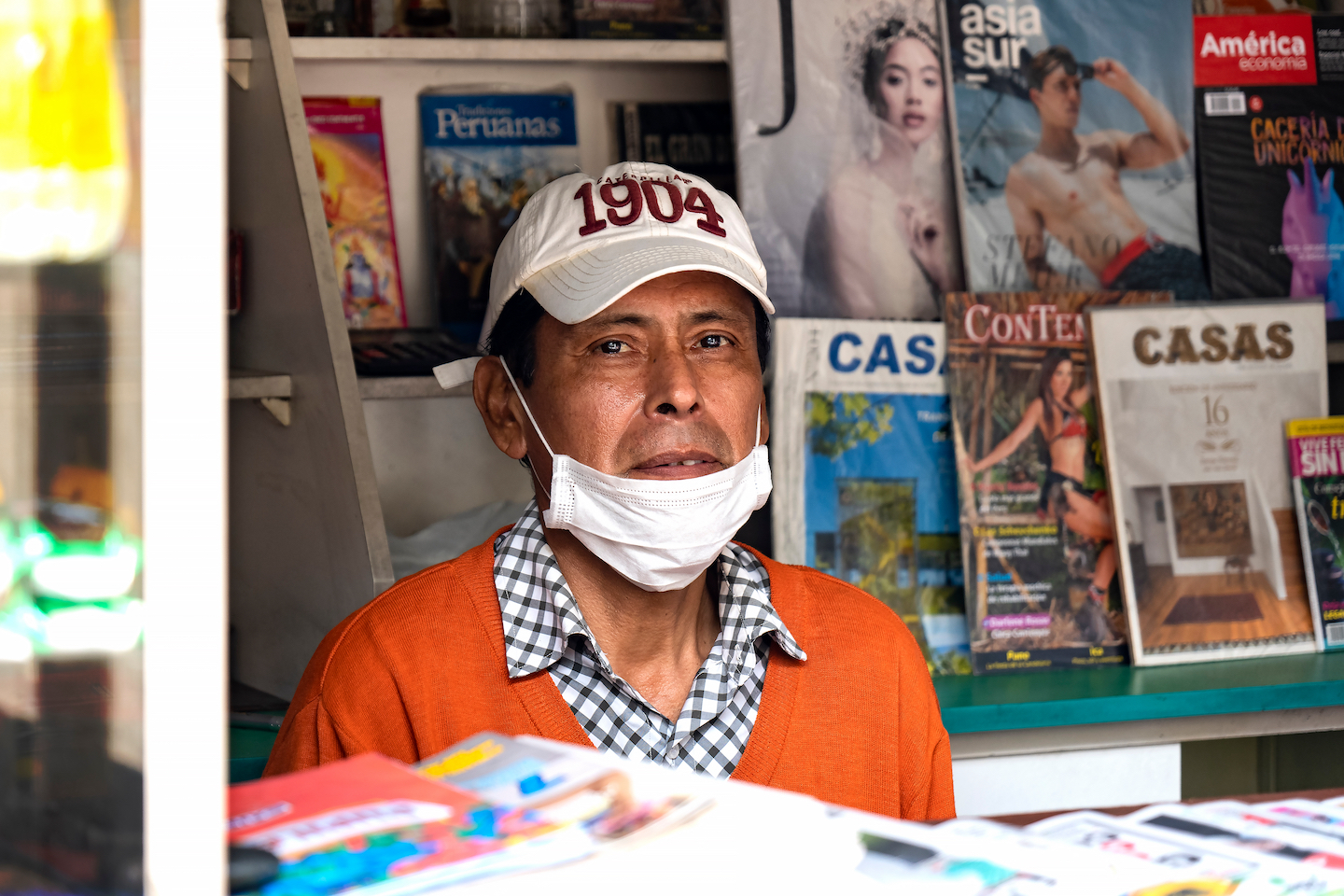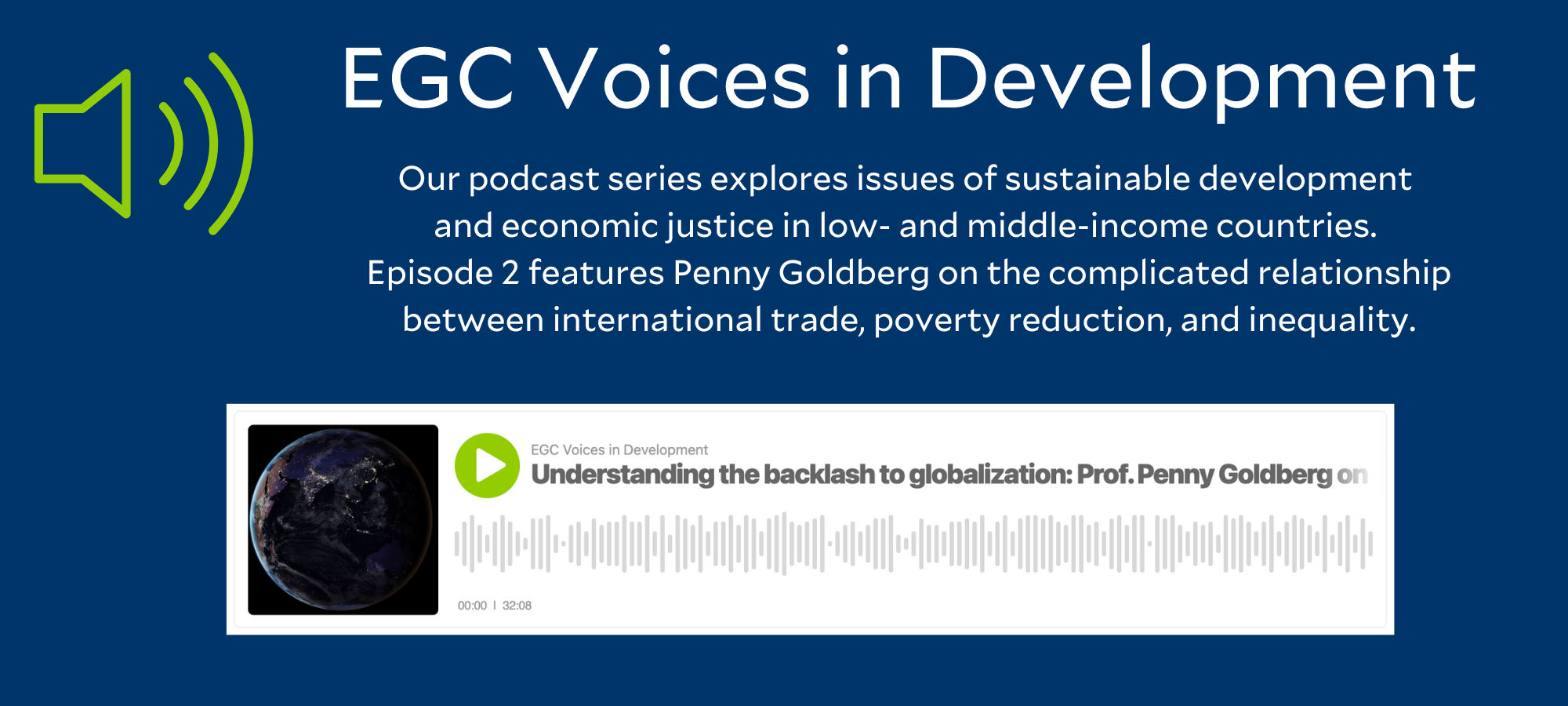EGC Quarterly Newsletter, October 2022
Our Fall issue focuses on EGC research on international trade – past and future – and invites readers to register for the North East Universities Development Consortium conference.

The secrets of international trade, development, and inequality
Soon after its establishment in 1962, EGC began a large country analysis program, under which newly hired Assistant Professors were tasked with researching the development trajectories of 25 lower-income countries across Asia, Africa, and Latin America, and creating databases for these countries. The program led to a rich set of country-specific monographs and articles. In covering the main findings of these country studies, the 1967-1970 EGC Annual Report highlights the importance of trade policy for country development, noting that, “The relationship between trade and growth continues to hold many secrets.”

As a country program scholar, Carlos Diaz-Alejandro (L) focused on Argentina. He continued as a Yale faculty member until the mid 1980s with important work on trade and development.
This relationship continues to hold secrets today – particularly with the increasing knowledge that growth alone will not end poverty in an unequal world – and EGC affiliates continue to investigate them. Roughly one third of EGC faculty have work related to international trade, and EGC also provides support for the Trade program based at our sister center Cowles foundation. You can read about our work on International Trade on this webpage.
One of these affiliates, Pinelopi Koujianou Goldberg, has thought deeply about the movement against globalization over the past several years. Why did this backlash start at a time of relative global prosperity? Her monograph which will be published in 2023 examines how the inequality within countries that has come along with globalization has put at risk the reductions in inequality across countries that it has accomplished. Penny describes this research – as well as her roots as an economist and her experiences as the Chief Economist at the World Bank – in the latest edition of the EGC Voices in Development podcast. Click the link below to listen.
The EGC’s long-standing program on international trade continues at full pace, bringing deep and rigorous analysis, evidence, and nuance to a polarizing area with a clear focus on welfare and distributional impacts. Current questions in international trade, alongside domestic market frictions and industrial organization in low- and middle-income-countries, form the core investigation areas that EGC will explore in the Markets and Development research initiative, involving affiliates Penny Goldberg, Amit Khandelwal, Nicholas Ryan, and Lauren Bergquist. Please visit our website for more details as this initiative takes shape over the coming months. 
Rohini Pande
Henry J. Heinz II Professor of Economics
Director, Economic Growth Center
Register for NEUDC 2022
On Nov 5-6 EGC will host the North East Universities Development Consortium conference, a major forum in development economics held annually since 1967. Discounted early registration ends soon.
EGC Affiliate Spotlights
Lauren Bergquist

The newly arrived Assistant Professor of Economics and Global Affairs and EGC affiliate combines economic models and field experiments to better understand how to improve markets for food for both buyers and sellers in East Africa.
Yusuf Neggers

The EGC Visiting Scholar conducted interdisciplinary research on questions at the intersection of development economics and political economy, with a focus on state capacity, elections, and the delivery of public services.
Sun Kyoung Lee

During a postdoctoral fellowship at EGC, the economist applied machine learning to digitize archival data and shed light on the links between urban infrastructure investments, land use policy, and inequality.
Recent Publications

Padró i Miquel asks why authoritarian regimes have local leadership elections; Lamoreaux traces how patent systems have enabled innovation and growth through history; and Neilson, Humphries and a Yale-based team examine the effect of government Covid-related funding on small businesses in Latin America. Explore the most recent EGC Research Summaries, journal publications, and Discussion Papers.
